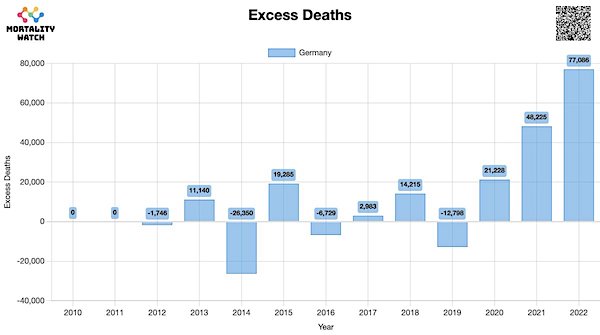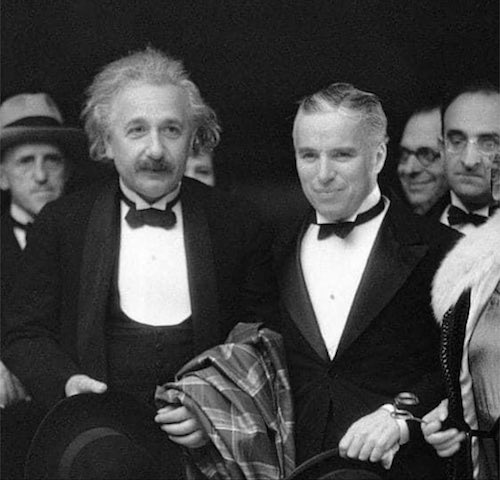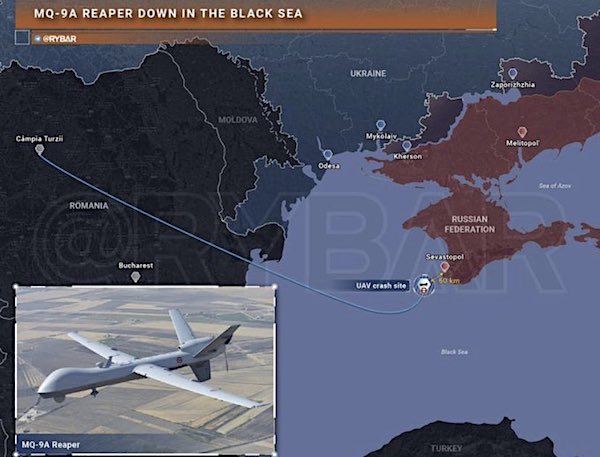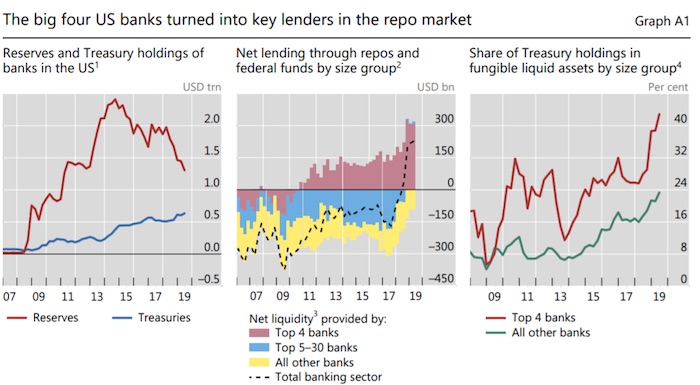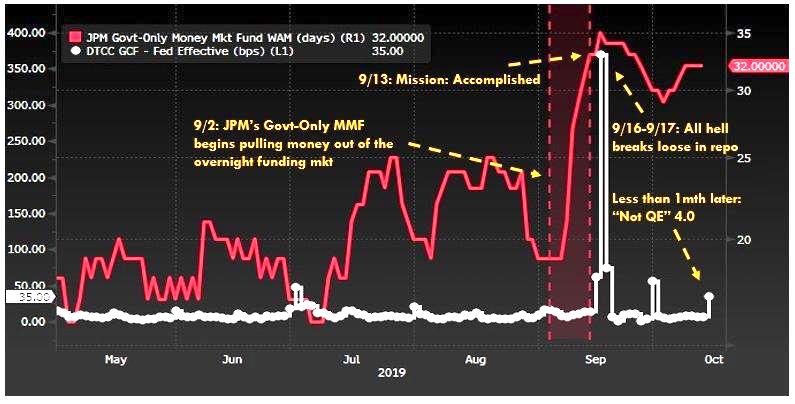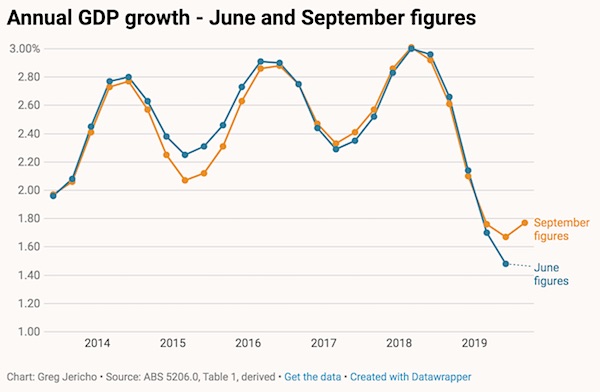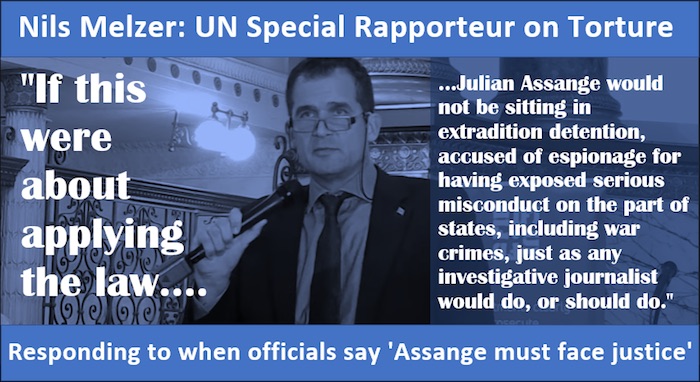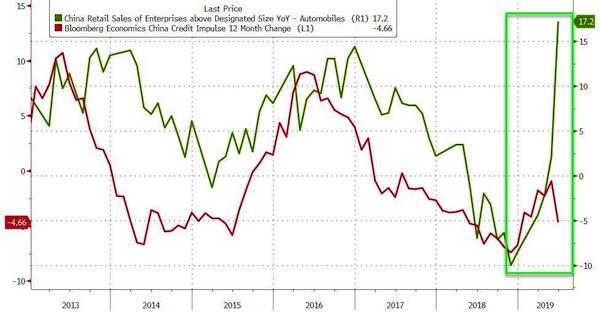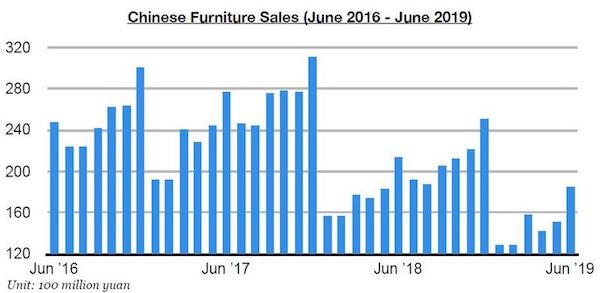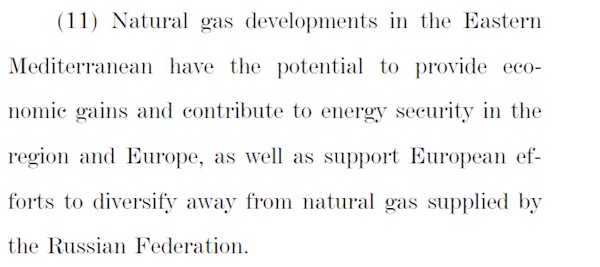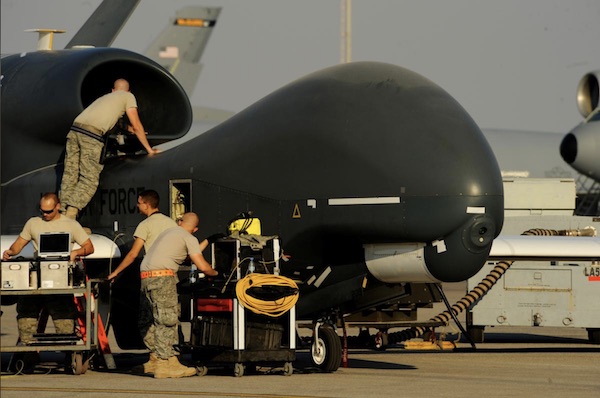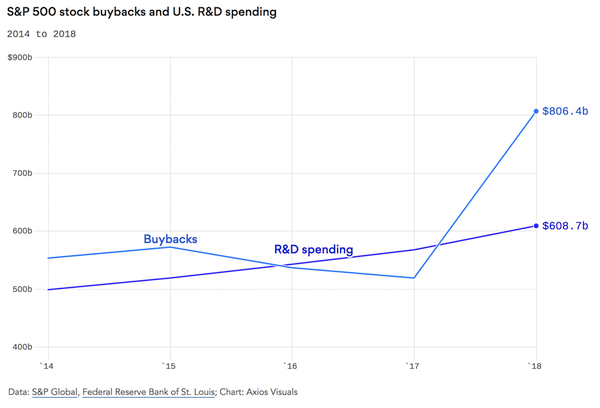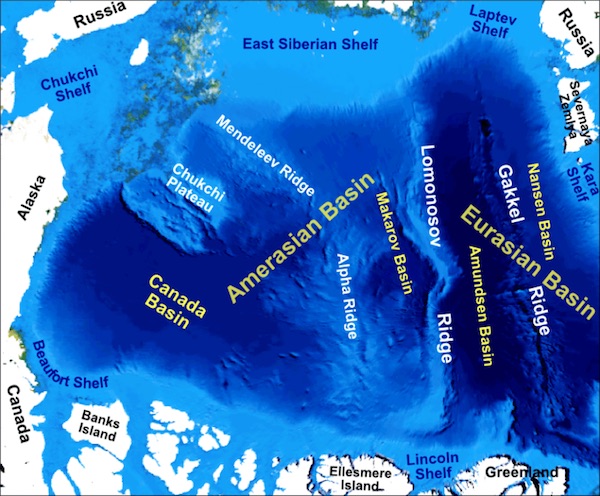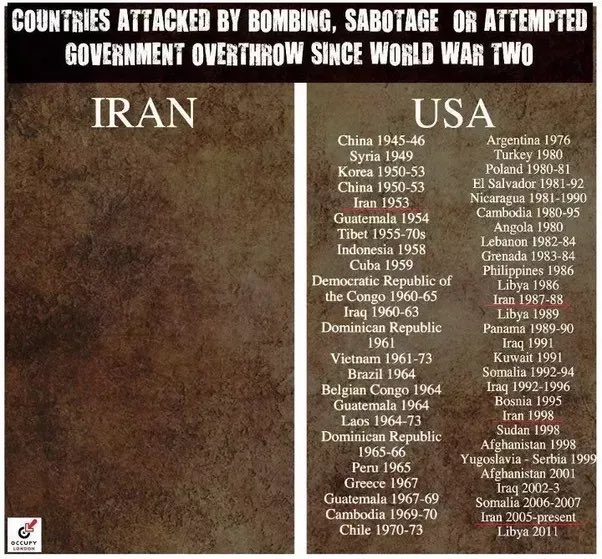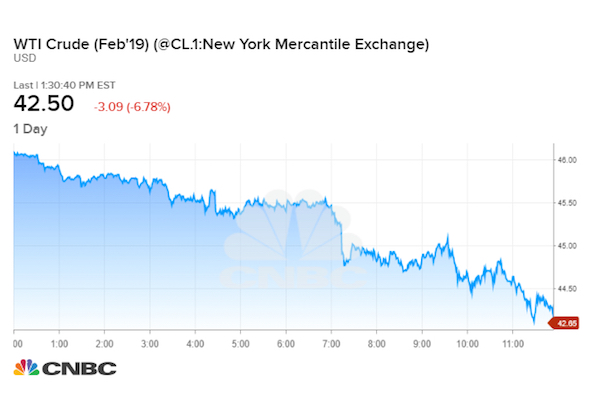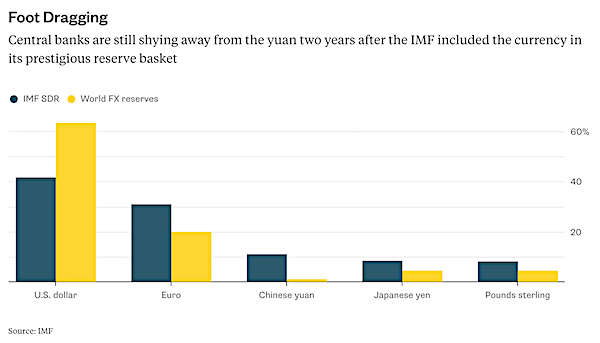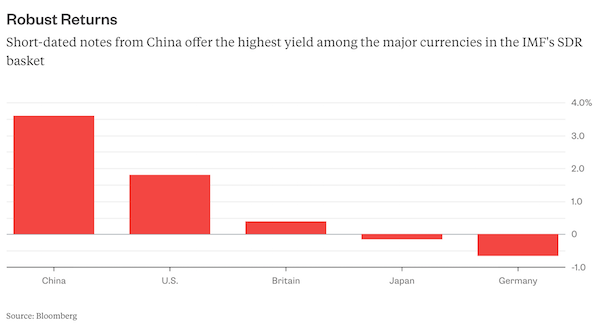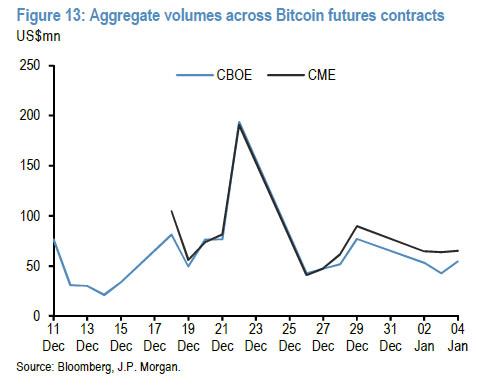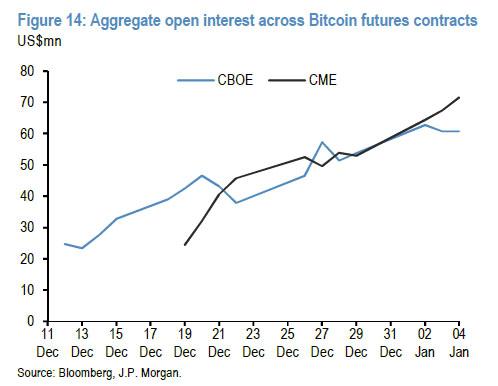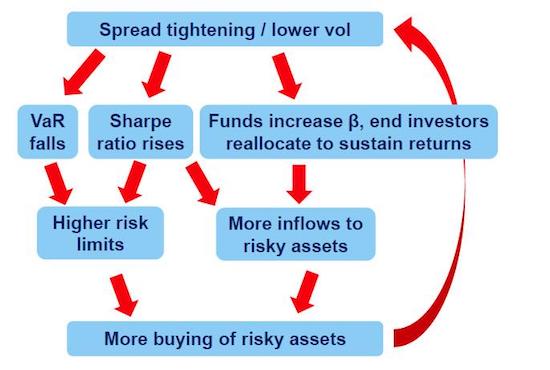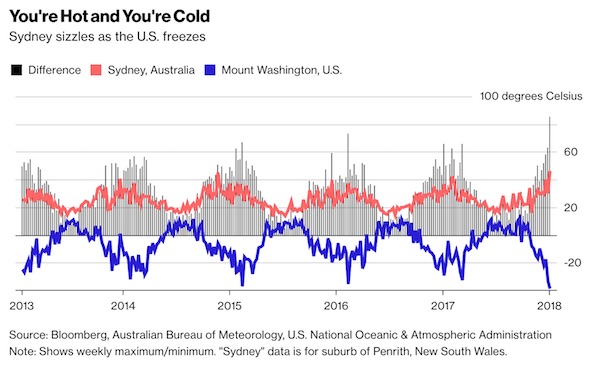
Pablo Picasso The first communion 1896 (he was 14-15)



Racist Biden
Remember everyone, Tucker Carlson is the racist. pic.twitter.com/UTN1IWIMWO
— Viva Frei (@thevivafrei) May 3, 2023



McLuhan
Can't stop watching this psychedelic 1967 clip where philosopher Marshall McLuhan uncannily anticipated what it's like to live in our world of social media pic.twitter.com/Bh4XVfriHY
— Benjamin Carlson (@bfcarlson) May 3, 2023

Gervais
They all lie.. pic.twitter.com/W1hguIBuRN
— Truthseeker (@Xx17965797N) May 3, 2023

https://twitter.com/djuric_zlatko/status/1653654163388088320
‘The Anglo-Saxons have not abandoned their plans to build a unipolar world, they want to destroy or weaken Russia, but do not take into account its power;
‘Experiments to revive neo-Nazi ideology in the West must be harshly suppressed, they lead to a global catastrophe;
‘The situation in the U.S. is becoming turbulent and unmanageable;
‘The U.S. intends to use Ukraine only as a territory with resources and does not seek to preserve it as a state;
‘European politics is in the deepest moral and intellectual decline;
‘The U.S., using NATO mechanisms, in fact, occupied Europe, European officials obediently carry out the military tasks of the alliance;
‘The U.S. has not seen combat on its continent in nearly 160 years, so American elites easily talk about the need to arm themselves and prepare for the resumption of atomic testing;
‘The West continues to steadily increase political, military and economic pressure on Russia;
‘Many U.S. and European citizens feel good about Russia and could become Russian citizens if they wanted to;
Russia continues to uphold traditional values that have been trampled in the U.S., so the number of Americans wishing to move here is only growing;
‘The West uses terrorist and extremist organizations against Russia;
‘The U.S. is not shy about speaking about the use of Russia’s water resources by all nations of the world;
‘EU officials ignore the arguments of professional environmentalists about the benefits of cooperation with Russia in the field of energy.


They’re trying to make you believe Russia did this, like Nordstream. I was going to wait and see. And then I read this:
“The Ukrainian postal service has already released a stamp design showing the Kremlin in flames, however, just as they did after the Crimean Bridge bombing last October – also denied by Zelensky and his government.”
• Medvedev Urges ‘Physical Removal’ Of Zelensky (RT)
Former Russian president Dmitry Medvedev drew a comparison between Ukraine and Nazi Germany on Wednesday, after two drones targeted the Kremlin. The vice-chair of the national security council urged Moscow to retaliate against President Vladimir Zelensky. “After today’s terrorist act, there are no options left but the physical removal of Zelensky and his clique,” Medvedev wrote on Telegram. “We don’t need him to sign [their] unconditional surrender. Hitler, as it is known, didn’t sign his either. There will always be someone like Admiral Doenitz to sit in as president,” he added, in reference to the Nazi officer who officially replaced Hitler after he committed suicide in April 1945 and presided over Germany’s capitulation. Medvedev’s ire was provoked by last night’s drone attack on Moscow, which Russia blamed on Ukraine. Two UAVs exploded over the Kremlin and the Russian Senate, with authorities saying they were brought down by air defenses. There were no injuries or reports of damage.
Russian President Vladimir Putin was not in the Kremlin at the time, working from another residence instead. “We consider this a premeditated terrorist action and an attempt against the Russian president,” the Kremlin said in a statement after the incident, adding that “Russia reserves the right to retaliate in a manner, place and time of its choosing.” City authorities in Moscow and St. Petersburg have already responded by imposing a ban on drone flights. Medvedev was president of Russia between 2008 and 2012, and then prime minister until 2020. Currently, he serves as the deputy chair of the national security council, which is formally chaired by Putin. Despite his prior reputation as a moderate liberal, he has been far more hawkish on Ukraine than the official Kremlin.
Last week, for example, Medvedev advocated “mass destruction of personnel and military equipment”and a “maximum military defeat” of Kiev once the much-hyped Ukrainian counteroffensive begins, arguing that the “Nazi regime in Kiev” must be “completely dismantled” and “former Ukraine”entirely demilitarized. Kiev has officially denied having anything to do with the drones. Zelensky insisted that Ukraine fights on its own territory and has no weapons to reach Moscow. His aide, Mikhail Podoliak, insisted Ukraine was fighting “an exclusively defensive war” and claimed the Kremlin attack was the work of “local resistance forces” in Russia. The Ukrainian postal service has already released a stamp design showing the Kremlin in flames, however, just as they did after the Crimean Bridge bombing last October – also denied by Zelensky and his government.

If this had been the White House the US would strike hard.
• Kremlin Accuses Ukraine Of Trying To Assassinate Putin (RT)
Russia says it downed two drones that were targeting the Kremlin in Moscow last night and accused Ukraine of attempting to kill President Vladimir Putin. The Kremlin said the drones were disabled by special services using electronic radar assets. Mr Putin was not in the Kremlin at the time, his spokesman Dmitry Peskov told the state news agency, adding there was no material damage to buildings. Ukraine says it is making no comment. Unverified footage on Russian social media showed smoke over central Moscow in the early hours of Wednesday. In a statement, the Kremlin said: “Last night, the Kyiv regime attempted to carry out a strike on the Kremlin residence of the President of the Russian Federation with unmanned aerial vehicles.”
It said it regarded this “as a planned terrorist act and an assassination attempt on the president”, and Russia “reserves the right to take retaliatory measures wherever and whenever is deemed necessary”. Mr Putin had not been hurt and his schedule would continue as normal, the statement said. Fragments of the drones had fallen on the Kremlin site but no-one had been hurt, it said. The Kremlin also noted the incident had come shortly before Russia’s 9 May Victory Day parade, which foreign dignitaries were expected to attend. The Ukrainian presidential office told the BBC it was not commenting at this time.
Video of the second drone strike on the Kremlin
16 minutes elapsed between the strikes of the two UAVs. pic.twitter.com/kawTNtxPVx
— Spriter (@Spriter99880) May 3, 2023

“But we like your planes…”
• Zelenskyy: Ukraine To Receive Combat Aircraft After Start Of Offensive (Az.)
Partners will provide Ukraine with combat aircraft after the start of the offensive of its armed forces, President Volodymyr Zelenskyy said at a press conference with President of Finland Sauli Niinisto, Report informs referring to UNIAN. The president of Finland noted that the country is ready to provide its own fighter jets to Ukraine. He noted that Finland does not have F-16 aircraft, but there are Hornet fighters, but they are very old, and there are not very many of them. “The Finnish position is geographically significantly different from many European countries and NATO countries… Now we are replacing outdated Hornets with F-35s. These are very large purchase volumes for a country like us,” he said.
At the same time, the president of Finland added that his country could not give Ukraine its Hornets before it received new aircraft, and by that time the Hornets would already be unusable. “But we like your planes…” Zelenskyy replied. He once again stressed that Ukraine needs combat aircraft. Prime Minister of Ukraine Denys Shmyhal said in early April that the Ukrainian counteroffensive could begin in the summer.

NATO on Russia’s borders.
• US in Talks on Establishing Military Bases in Finland (Antiwar)
The US and Finland are working out a deal that would allow the US to establish a military presence in the Nordic country, as Helsinki is now a member of NATO. According to Newsweek, Finnish Foreign Ministry official Mikael Antell confirmed the two nations are negotiating a Defense Cooperation Agreement that may allow for the construction of significant military infrastructure on Finnish soil. The potential agreement would not include nuclear weapons, although Finnish officials have previously not ruled out hosting nukes. The US has nuclear weapons stationed in five NATO countries under the alliance’s nuclear sharing program but not in any nations that became members after the end of the Cold War. Antell said the potential DCA “enables troops to enter the country, stay on the ground, the pre-storage of material and possible infrastructure investments through the funds granted by the US Congress to the Pentagon.”
The US and Finland have been in talks on the DCA since last fall, and discussions on the deal took place in Helsinki last week. “The agreement also defines the facilities and areas where the cooperation would be focused,” Antell said. “They are basically military areas and garrisons. In principle, there can be more than one, but the discussions are still open in this regard.” Finland shares an over 800-mile border with Russia, and its ascension into NATO means the region will become further militarized. Moscow has plans to beef up its military presence near the border in western Russia and has said it will take more steps to respond to the expansion of NATO infrastructure in Finland.

Finland has been warned.
• Russia To Retaliate In Case NATO Uses Finnish Territory – Zakharova (TASS)
Russia will be forced to take military-technical and other retaliatory measures if NATO uses Finland’s territory, Russian Foreign Ministry Spokeswoman Maria Zakharova said. “We are closely following NATO’s plans regarding Finland. We confirm that Russia will be forced to take retaliatory measures of both military-technical and other nature to curb threats to our national security that appear in this connection,” the diplomat said at the briefing on Wednesday, commenting on the plans to conclude an agreement allowing the US military to use Finnish territory. The spokeswoman also pointed out that Moscow regarded such plans as Helsinki’s loss of sovereignty. “However, both Finland itself and NATO must realize that pumping Northern Europe with troops will only contribute to growing military and political tensions in this region as well,” Zakharova concluded.

“The concept of “globalization” has shifted from being a West-dominated phenomenon, no longer synonymous with “Westernization,” to a more diverse one which the US and collective West realize they no longer control.”
• The ‘Clash Of Civilizations’ Is Already Underway (Fomenko)
For the past 400 years or so, Western nations have dominated the world. European empires, as well as the United States, subjugated nations and built colonial states across the globe. This was done primarily for economic reasons, allowing these countries to enrich themselves at the expense of colonies and creating vast commercial empires which were enforced by military power. Such imperialists framed themselves as benevolent guardians who represented a higher form of civilization and values which they were “bringing” to the colonized. Thus, as they spread their empires throughout Africa, Latin America, the Indian subcontinent, Asia, and elsewhere. Westerners also sought to expand their ideology and value systems. It is because of this that “Westernization” and “globalization” have effectively meant the same thing, as the empires of old were the ones that brought the world together through the economic and trading system they created.
But starting in the 20th century, many of the countries which were colonized by the West started to resist their oppressors, and movements for independence and liberation surged. One such movement, of course, was the rise of the Communist Party in China led by Mao Zedong, and every movement he inspired. While the US triumphed in the original Cold War and ushered in a new wave of globalization, styled as Pax-Americana, that era has now come to an end. This is because the world has changed, specifically through the emergence of China as a global power. The concept of “globalization” has shifted from being a West-dominated phenomenon, no longer synonymous with “Westernization,” to a more diverse one which the US and collective West realize they no longer control.
In other words, “globalization” is no longer a one-way road whereby the West imposes its values unilaterally on the rest of the world in conjunction with economic dominance. Countries such as China, as seen through programs such as the Belt and Road Initiative, are able to benefit from it too. This is where the new “clash of civilizations” comes in, precisely because China has gained the ability to challenge the West’s vision for the world on a scale never seen before, and even surpassing that of the former Soviet Union. Contemporary China frames itself as a model within a multipolar order, seeking to reject the Western-centric version which has dominated the world for centuries and allowed these countries to exploit and change others. In doing so, China refuses “Westernization” and positions itself as its own “civilizational pole.”
Of course, it is not alone, and Beijing finds support from many nations that have similarly been “net losers” and subject to colonialism, and who all seek a fairer international system. For example, this has great appeal to countries in Africa, the Middle East, Latin America, South Asia and, of course, Russia. Many of these countries see the onslaught of Western values not only as historical threats to their national sovereignty, but also to their own cultural identity. Why, for example, is a country such as the United Arab Emirates, a traditional Western partner, now so pro-China? As a highly conservative Arab state, it views the pursuit of Western liberalism as a threat to its own Islamic values, and sees support in a Chinese state which, even espousing a different ideology, encourages plurality and respect for different civilizations as opposed to Western evangelism.

And then act like it’s their idea to begin with…
“exceptional and temporary preventive measures on imports” of the four items to “alleviate logistical bottlenecks”
• EU Bans Ukraine Grain Exports To Five Members (RT)
The European Union has blocked the import of Ukrainian wheat, maize, rapeseed and sunflower seed to five member states for at least a month. The measure went into effect on Tuesday evening and is scheduled to expire June 5, unless it is extended. The European Commission announced the “exceptional and temporary preventive measures on imports” of the four items to “alleviate logistical bottlenecks” in Bulgaria, Hungary, Poland, Romania and Slovakia. The EU regulation supersedes the state-level bans enacted by some of those governments. Kiev can still use “a common customs transit procedure” to export the grain and seed-oil components to other EU member states or outside the bloc, but cannot sell them to the five “frontline” countries.
Sofia, Budapest, Warsaw and Bratislava had “committed to lift their unilateral measures” on the four items “and any other products coming from Ukraine,” the Commission said. In return the EU will provide “financial support” to their farmers. No number was provided in Tuesday evening’s statement, but media reports last week spoke of a €100 million ($110 million) package. According to the Commission, the measure was enacted to address the concerns of farmers in the five border countries, while upholding the EU’s “strong commitment to support Ukraine and preserve its capabilities to export its grains” described as “critical to feed the world and keep food prices down” in the face of “Russian aggression.” The same justification was invoked last year, when the EU suspended tariffs on imports of Ukrainian agricultural goods.
Kiev has argued that letting Ukraine export its grain via the EU and the Black Sea Initiative would help countries in Africa and Asia dependent on food imports. In practice, the arrangement flooded the EU with cheap raw materials, endangering the livelihoods of farmers in neighboring countries, whose work is highly regulated by Brussels.The EU did not mention any of that in its announcement, however, saying only that the imports resulted in “saturated storage capacities and logistical chains.” Meanwhile, Russian grain and fertilizer remain blocked from reaching the rest of the world, because the US and EU sanctions against Moscow’s shipping industry have closed off all avenues for their transportation. Russia has warned that, unless that part of the Black Sea Initiative is implemented, it will stop participating in the deal.

“What is the purpose of NATO other than to oppose Russia? If you’re addressing Russia in a hostile way from the beginning, of course their reaction is going to be hostile back..”
• RFK Jr Shares Opinion On Key US Mistake With Russia (RT)
Instead of listening to Russian President Vladimir Putin’s warnings about “red lines,” the US has repeatedly crossed them, Robert F. Kennedy Jr. said in an interview published on Wednesday. The Democrat running for US president also said Washington should have either invited Moscow to NATO or dismantled the anti-Russian alliance after the Cold War. “We should have listened to Putin over many years. We made a commitment to Russia, to Gorbachev, that we would not move NATO one inch to the east. Then we went in, and we lied,” Kennedy told the outlet UnHerd. Instead of offering to integrate Russia into the West, as many diplomats urged in 1991, the US expanded NATO to its borders. “What is the purpose of NATO other than to oppose Russia? If you’re addressing Russia in a hostile way from the beginning, of course their reaction is going to be hostile back,” Kennedy said.
He described what happened in Kiev in 2014 as “essentially a coup d’etat” supported by the US, recalling the infamous phone call in which Victoria Nuland was “handpicking a new cabinet” hostile to Moscow. “If Mexico did that and then started killing – they killed 14,000 Russians in Donbass, the Ukrainian government – if Mexico did that to expatriate Americans, we’d invade in a second,” Kennedy said, adding that Putin “repeatedly told us: these are red lines, you’re crossing.” American leaders should be able to “put yourself in the other guy’s shoes,” just like his uncle John F. Kennedy did during the Cuban Missile Crisis in 1962, stepping back from the brink of nuclear war, which all of his advisers were pushing for.
Kennedy condemned the “barbaric and illegal invasion” of Ukraine and called Putin a ‘gangster’, a ‘thug’ and a ‘bully’, but said the conflict needed to be settled quickly, because the US had already “sacrificed 300,000” Ukrainians in battle. While the White House presented aiding Kiev as a humanitarian mission, “every step that we’ve taken has been to enlarge the conflict and to maximize bloodshed,” he said. “Let’s be honest: It’s a US war against Russia, to essentially sacrifice the flower of Ukrainian youth in an abattoir of death and destruction for the geopolitical ambition of the neocons” to see regime change in Moscow, Kennedy said. He added that the people who created the problem weren’t capable of settling it. Asked about his proposed solution, Kennedy said that something like the Minsk accords, agreeing to keep Ukraine out of NATO, and removing nuclear missile launchers from Russia’s borders might work.

“The America I love doesn’t imprison dissidents.”
• RFK Jr Pledges To Pardon Assange (RT)
US presidential candidate Robert F. Kennedy Jr. has vowed to pardon “brave truth-tellers” including WikiLeaks founder Julian Assange, who is currently being held in a British high security prison as he fights extradition to America. The US “actively persecutes journalists and whistleblowers” instead of championing free speech, Democratic contender Kennedy tweeted on Tuesday. “This isn’t the Soviet Union. The America I love doesn’t imprison dissidents.” The Australian-born Assange is effectively facing a lifetime sentence for his role in the leaks by US military whistleblower Chelsea Manning. Assange was arrested in Britain in 2019 after Ecuador revoked his political asylum, allowing police to enter its embassy in London, where he had been holed up for seven years.
Assange was then sent to Belmarsh prison, a facility ordinarily used to house some of the most dangerous criminals in the UK. Kennedy, who is seeking the Democratic Party’s nomination for the 2024 presidential election, said he would pardon both Assange and Manning. The latter spent seven years in US custody after leaking troves of classified materials to WikiLeaks in 2010, but had her sentence commuted by then-President Barack Obama in 2017. The US government has accused Assange of encouraging and facilitating Manning and is aiming to extradite him for trial. Assange’s defenders have argued that his trial would set a dangerous precedent, and that his actions were no different from other publishers of classified documents who sought to protect their sources.
Kennedy named a number of “other brave truth-tellers” who deserve similar exoneration, including Edward Snowden, who now resides in Russia. Instead of prosecuting them, the presidential hopeful pledged he would “investigate the corruption and crimes they exposed.” Kennedy is among three people to have formally announced their bids for the Democratic nomination. While incumbent President Joe Biden is the frontrunner, Kennedy is polling at 19%, with author Marianne Williamson trailing at 9%, according to a recent Fox News survey. The Biden administration has said it has no plans to drop the charges against Assange, despite calls by media freedom advocates. Critics have accused Washington of hypocrisy, citing its habit of lecturing other nations over press freedoms.

“Are You Ready for High Inflation and Collapsing Living Standards?”
• The US Dollar is Finished (Paul Craig Roberts)
The decision to offshore US manufacturing was an economy-wrecking decision. The goods that Apple, Nike, Levi, and all the others make in China and Asia enter the US as imports when they are marketed in the US. The US, having moved its manufacturing offshore, has little to export to cover the trade deficit resulting from imports. By using their trade surpluses with the US to purchase US Treasuries, foreigners financed the US budget deficit and US wars. As countries increasingly settle their trade imbalances in other currencies, foreign demand for US debt is declining. The consequence is that the supply of dollars is increasing, but the demand for them is falling. This means a drop in the exchange value of the dollar, which means a rise in import prices. The worst inflations are caused by the decline in the exchange rate of a currency. It is an inflation that the central bank cannot fight by throwing people out of work.
This is America’s future, and I don’t mean in ten years. I have been warning of this development, but the presstitute media does not report any facts unfriendly to the official narratives, everyone of which is a lie. The US can hold on for a while longer by having the Japanese, European, and British central banks print their currencies with which to purchase dollars, thus cushioning the dollar’s decline. But the consequence is that these currencies also will fall in value relative to those outside the dollar system. In other words, the plight of the dollar will spread throughout the empire. Wall Street, greedy corporate executives and boards, and incompetent policymakers in Washington offshored US manufacturing and made the US import-dependent. Next they destroyed the dollar as world reserve currency and thereby doomed the dollar to devaluation against other currencies, and this will destroy US power.

“The combination of aggressive US sanctions policy and reckless government spending have dramatically reduced the greenback’s international appeal.”
• Pepe Escobar: Global De-Dollarization Nearing ‘Crossroads Moment’ (Sputnik)
De-dollarization is heading for a breakthrough due to rising global discontent with US ‘casino capitalism’, Pepe Escobar, geopolitical analyst and veteran journalist, told Sputnik News. “It’s a gigantic snowball all over the world. We cannot even keep up with it,” Pepe Escobar said in an interview with the New Rules podcast. “It’s very important what is going to be discussed at the BRICS summit in South Africa. This will probably be the crossroads moment where things are going to then go.” Escobar explained that a growing number of countries in the Global South were doing the math and concluding that the US dollar was not a safe bet. The combination of aggressive US sanctions policy and reckless government spending have dramatically reduced the greenback’s international appeal.
“If you want to analyze the patterns these past two decades, you need to understand the fact that, if you are rich in commodities and if you are a productive capitalist nation and you decide to issue a currency, it will be internationally respected because people will know it’s based on facts, actual provenance, actual wealth,” he said. “That’s contrary to the system that we have now, which I have been calling it ‘casino capitalism’ for years. It’s futures, it’s bets, it’s suppositions. It may go right or wrong. If you lose, you lose it all. The house mostly always wins because the house is the one who prints the currency. It’s backed by nothing, literally, by a country that owes $30 trillion [in national debt] now and it will never be able to repay it.” To make matters even worse, the US Federal Reserve’s aggressive interest rate hikes has made borrowing in dollars expensive for almost everyone in the world.
Prior to the Fed’s move, Kristalina Georgieva, managing director of the International Monetary Fund, warned in January 2022 that the US raising interest rates could backfire on the global economy and especially on countries with higher levels of dollar-denominated debt. The ongoing US banking crisis threatens to further destabilize international financial markets. No country in the world wants to “catch a cold” when the US economy “sneezes,” as memories of the 2008 financial crisis linger. “They say, ‘look, why do we have to be subjected to this kind of arrangement?’ And of course, before, as we all know, it was ‘the Empire of bases’, over 800 military bases all over the world, ‘the power of the financial markets’, ‘the power of soft culture’, ‘the power of cancel culture’, but the Global South is not intimidated anymore. I think this is the first [time] in this new millennium. We never had this before in the past two and a half centuries, at least,” Escobar said.

“I made a commitment to my friend Alberto Fernandez that I will do every and any sacrifice so we can help Argentina in this difficult moment.”
• South American Nations Seek To Avoid Dollar (RT)
The presidents of Argentina and Brazil have announced plans to continue working on the development of a mechanism allowing them to avoid using the US dollar in bilateral trade. Crisis-hit Argentina is seeking to rebuild its reserves to cover trade costs and future debt repayments as a key component of a major debt deal with international creditors. Brazilian President Luiz Inacio Lula da Silva and his Argentinian counterpart Alberto Fernandez were expected this week to reveal the new mechanism allowing Argentine firms to continue trading with Brazil without draining dollars from the country’s reserves. However, the leaders announced following a meeting on Tuesday that the plan still needed to be fine-tuned.
“The meeting was long, difficult and we will carry out many more meetings,” Lula said alongside Fernandez, as quoted by the Associated Press. “I made a commitment to my friend Alberto Fernandez that I will do every and any sacrifice so we can help Argentina in this difficult moment.” The proposed scheme reportedly includes a line of credit to finance Brazilian businesses that export to Argentina, aimed at avoiding the use of US dollars in settlements. According to Brazilian Finance Minister Fernando Haddad, the two nations are studying possible guarantees in order for Brazil’s government to provide financing.
“They’ve made the decision to help make sure that Brazilian companies continue exporting to Argentina and they had asked us to do some homework, which we have already done, and have to do with the necessary guarantees,” Fernandez said. He added that Economy Ministry officials will be meeting their Brazilian counterparts next week to discuss the details. Earlier this year, Argentina sealed an agreement with China that allows companies in the debt-laden nation to pay for Chinese imports in yuan. Buenos Aires owes $44 billion to the International Monetary Fund (IMF). The nation is currently renegotiating the agreement signed with the fund last year to restructure some of its loans.

Lots of BRICS+ candidates.
• Asian Nations Sign Pact To Shift Away From Dollar (RT)
The central banks of South Korea and Indonesia have signed a memorandum of understanding to promote bilateral trade in national currencies, moving away from the US dollar as an intermediary. The step is expected to help South Korean and Indonesian corporations to lower transaction costs and exposure to exchange rate risks, the central banks of the two nations said in a joint statement. The Bank of Indonesia and the Bank of Korea highlighted that they would continue to strengthen collaboration through information-sharing and regular discussions, as the two nations seek to boost financial ties. The agreement was signed on the sidelines of the 26th ASEAN+3 Finance Ministers and Central Bank Governors’ Meeting that kicked off in the South Korean city of Incheon on May 2.
The ASEAN+3 group consists of the ten member states of the Association of Southeast Asian Nations, which are joined by China, Japan, and South Korea. Attempts to shift away from the greenback in international trade have been gaining momentum among major economic blocs such as ASEAN and the BRICS group, which consists of Brazil, Russia, India, China, and South Africa. The step comes against the backdrop of sweeping sanctions introduced by Western nations against Russia, a major global energy producer and exporter. The head of the Indonesian central bank, Perry Warjiyo, said last month that his nation was implementing a shift away from the dollar with countries such as Thailand, Malaysia, China, and Japan. In March, Brazil and China signed an agreement to trade in their own currencies, dropping the greenback as an intermediary.

“The West’s appeals for democracy and national independence, on the other hand, are perceived as hypocritical, given its history on the continent.”
• Who Is Winning The Scramble For Africa? (Fazi)
Reports of violence breaking out in Africa rarely raise eyebrows in the West these days. Perhaps we feel it has little to do with us, whatever the West’s historical responsibilities for the continent’s problems. But as the recent events in Sudan demonstrate, this is no longer the case. The turmoil unfolding there is of far more importance to us than we might think. While the fighting in Sudan is, on the face of it, little more than a power struggle between the two rival factions that control the country, there is also an important international and geopolitical dimension to the conflict. At its heart is the great powers’ competition for influence over the continent — what has been called the “new scramble for Africa”. Given its vast natural resources, including gold, its agricultural wealth and its geopolitically strategic location, Sudan has long attracted regional and international power plays.
In recent years, Saudi Arabia, the United Arab Emirates, Egypt and Israel have all been cultivating economic and political ties with the country’s leadership — and its two warlords in particular. One country, however, stands out for its “special relationship” with Sudan: Russia. Putin made sure to cultivate an alliance with the country’s former leader, Omar al-Bashir, deploying the infamous Wagner Group in 2017 to provide him with political and military support. More importantly, that same year, al-Bashir signed a military cooperation agreement with Russia which included allowing the Russians to establish a military base along the Red Sea, ensuring a permanent presence for the Russian Navy in a crucial region and easy access to the Indian Ocean.
Al-Bashir was overthrown in 2019, before the agreement came into play, but Russia maintained good relations with the new administration’s military leaders, especially Mohamed Hamdan Dagalo, better known as Hemedti, whose Rapid Support Forces control the country’s gold mines. The transitional military-civilian government confirmed the decision to allow Russia to establish a base in 2020, but backtracked the following year under pressure from the US. However, once the civilian members of government were purged in yet another coup, in 2021, the agreement was revived. Today, there is no indication that the issue of the naval base played a role in the recent outbreak of fighting, nor are any of the major foreign players openly backing either of the two warring factions. But if one side should explicitly align itself with, say, Russia, the conflict could easily turn into another front of the proxy war between the West and Russia, alongside Ukraine, with potentially disastrous consequences for the entire continent.
For Africa is already the stage of the New Great Game of the 21st century — the struggle between Western countries, China and Russia for influence over this immensely resource-rich, young continent predicted to be the next frontier of growth. In this game, Russia is particularly well-positioned. More so than the West, it enjoys strong historical and ideological ties with many African nations. The Soviet Union was the primary ally of several nations on the continent during the Cold War, and supported various anti-colonial and post-colonial movements; many countries are still ruled by parties that were supported by Moscow during their struggles for liberation from colonial or white supremacist rule, including Nelson Mandela’s African National Congress (ANC). The West’s appeals for democracy and national independence, on the other hand, are perceived as hypocritical, given its history on the continent. Hence Russia’s argument that the war in Ukraine is actually part of a broader struggle against Western imperialism resonates in Africa, which harbours strong grievances against the West over its colonial and neocolonial practices.

And PacWest is not the only bank in trouble.
• PacWest Craters 60% On Report It Is Seeking Buyers Or Capital Raise (ZH)
Earlier today, when Jerome Powell openly lied to the American People during the FOMC press conference stating without a hint of irony that the US banking system is “sound and resilient”… …we balked: how could this former lawyer lie so brazenly to the American people, the narrator wondered, when in just the past few weeks we had seen over half a trillion in bank failures, making the current bank failure episode even worse than the global financial crisis? Well, as usual, the narrator was right, because while Powell’s lies were still ringing in our ears, the next regional bank collapse was on its say. Shortly after the close, Bloomberg reported that another regional, California-based bank (of course), PacWest Bancorp., was weighing a range of strategic options, including a sale.
The Beverly Hills-based bank – whose financial conditions it appears has been far worse than the Fed, which just hiked another 25bps, thought – has been working with a financial adviser and has also been considering a breakup or a capital raise, according to Bloomberg sources. While it is open to a sale, the company hasn’t started a formal auction process. According to the report, “an outright sale has been hindered because there aren’t many potential buyers interested in the entire bank, which comprises a community lender called Pacific Western Bank and some commercial and consumer lending businesses, the people said.” And similar to SVB and FRC, “a potential buyer would also have to potentially book a big loss marking down some of its loans, the people said.”
On Tuesday, PacWest tumbled 28% as investors retreated from regional bank stocks following JPMorgan’s deal on Monday for the failed First Republic Bank, a transaction which did nothing to ease concerns about regional bank viability, which was to be perfectly expected since today’s rate hike would only make the regional bank deposit run even bigger, something which was obvious to everyone…… except the Fed!
And sure enough, following the Bloomberg report, PacWest – which had $28 billion in deposits at last check (far less as of this moment) and $44 billion in assets, saw its stock plunge more than 60% after hours… Bear in mind that just a week ago, PacWest shares surged 17% after the midsize lender said deposits stabilized toward the end of March and rose in April. “Importantly, deposits stabilized in the latter part of March and rebounded nicely in April, increasing approximately $700 million subsequent to quarter-end,” President and CEO Paul Taylor said in the release Tonight’s dismal news comes six weeks after PacWest said it had shored up its access to cash by raising $1.4bn via a lending facility from Apollo-backed investment firm Atlas SP Partners.
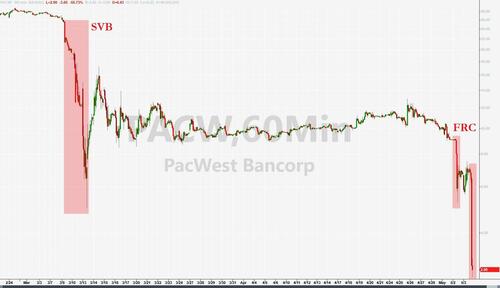

“Say it out loud and try not to snicker: “The coronation of Charles the Third.”
”..you’re waking up in a country where a priest is going to smear oil – vegan oil from Jerusalem – on a rather pinkish, rather broad forehead to signify one man’s status as the Lord’s anointed.”
• God Save Us All: Britain Is About To Get The King It Deserves (Marche)
Say it out loud and try not to snicker: “The coronation of Charles the Third.” In a time of post-post-colonialism, of anti-racist iconoclasm, a time in which the very notion of gender as a legitimate distinction is contested, and Christianity has been reduced to a scandal management system with costumes, a 74-year-old British gentleman will ride a fancy carriage to an old church where a few other elderly British gentlemen in gilded dresses will declare him emperor, patriarch and head of state because God says so. You might think you live in a time of truth and reconciliation, or perhaps even, if you’re feeling optimistic, progress. But this week if you’re British or a member of the 56 sovereign states that still, somehow, find themselves in the Commonwealth, you’re waking up in a country where a priest is going to smear oil – vegan oil from Jerusalem – on a rather pinkish, rather broad forehead to signify one man’s status as the Lord’s anointed.
The coronation cannot be described as a popular event. In April, various polls gauging the public mood around Charles’s ascension found that only 15% of the British population were “very interested” in the coronation. In Canada, where I live, the majority of citizens are in favor of severing ties with the monarchy altogether (up to 70% in Quebec). The crown itself seems embarrassed by all the fuss. The coronation ceremony has been curtailed, and will last a little over an hour, we’re promised, as opposed to the three hours allotted for Queen Elizabeth II. For Canada, the absurdity of the coronation is basic: we are not a British colony, but we have a British king. For the British, the national pride supposed to underlie a coronation has been exposed and harried: UK GDP cut by 4%, a lost £100bn a year in output, the pound losing a fifth of its value, all since Brexit. It’s hard to celebrate when inflation is at 10.1% and the Bank of England has to raise interest rates again, especially when it costs £100bn.
As of April, only 34% of Britons still believe that Brexit was the correct decision. And underlying the recognition of their error is a dawning realization of the failure at its root: the British people – not the press, not the politicians – failed to understand their place in the world. Nostalgia and vanity, and ultimately self-deceit, led them into a calamity which seems, at the moment, impossible to recover from. This week, on his fancy carriage ride, Charles will be surrounded by many preposterous objects. He’ll be holding the world’s largest diamond on the end of a stick. He’ll be wearing a hat with a ruby that Henry V wore into battle. He’ll be sitting on a chair over the Stone of Destiny, a stone English kings stole from the Scots almost a millennium ago. The real absurdity will be deeper, for both Canada and Britain. Charles is a symptom of twin identity crises: the man represents us, but it’s hard to think of anyone less representative. I mean, it’s all fun and games, but his face is going to be printed on my money. “God save the king!” I find myself shouting, absurdly.




James Lindsay
We are in an informational civil war and James Lindsay is a general. Must watch speech @ConceptualJames pic.twitter.com/BIR27ycsKe
— MiddleMaga.com (@StucknDaMid) April 30, 2023



Socotra
Socotra is considered the jewel of biodiversity in the Arabian Sea. a 1990 UN survey counted nearly 700 endemic species, found nowhere else on earth
[read more: https://t.co/9C5Qly5GsN]
[📹 https://t.co/B5vfuPxyVk]pic.twitter.com/DAm9TA2LiC— Massimo (@Rainmaker1973) May 3, 2023

Turbine
The Vortex Turbine by Turbulent Hydro is an eco-friendly way to harness energy from rivers and canals with a low height difference. A single turbine can generate from 15 to 70 kW of constant energy around the clock
[read more: https://t.co/SNc2GI34Uw]pic.twitter.com/lA99r6o6ys
— Massimo (@Rainmaker1973) May 3, 2023

Blue whale
This drone view by Domenic Biagini not only shows the magnificence of the blue whale, the largest animal that ever lived, but also how the blowhole, essentially its nostril, is so similar to the human nose
[source, more videos: https://t.co/MALD8RzPYA]pic.twitter.com/dcEJF1hwse
— Massimo (@Rainmaker1973) May 3, 2023


Support the Automatic Earth in virustime with Paypal, Bitcoin and Patreon.

















